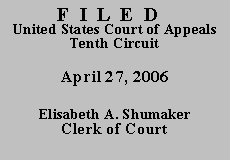

Appellant was indicted by a grand jury in a three-count indictment for
charges involving the possession, importation, and intent to distribute 100
kilograms or more of marijuana. She then pleaded guilty without a plea
agreement. The presentence report placed her in criminal history category III and
recommended a guideline sentencing range of 41 to 51 months' imprisonment.
The minimum sentence required by statute for the offenses to which Appellant
pleaded guilty, however, was 60 months' imprisonment. At sentencing,
Appellant asserted that her criminal history categorization over-represented her
criminal history and moved for a reduced categorization. She also asked for a
downward departure from the statutory minimum sentence. The district court
rejected both of these motions.
Appellant argues that the district court abused its discretion when it did not
depart downward from the statutory minimum sentence of 60 months.
Specifically, Appellant argues that the court should have considered that she
suffered from battered woman's syndrome. Because Appellant did not present
this argument to the district court at sentencing, we review for plain error. To
qualify as plain error, the error must be (1) error, (2) that is plain, (3) that affects
Appellant's substantial rights, and (4) that "seriously affect[s] the fairness,
integrity, or public reputation of judicial proceedings." United States v. Olano,
507 U.S. 725, 732 (1993) (internal quotation omitted).
In Appellant's case, the district court correctly determined that it was not
within its discretion to depart downward from the statutory minimum and,
therefore, there was no error. The sentencing provision of the drug statutes to
which Appellant pleaded guilty contains a safety valve that allows for the court
to depart downward from the statutory minimum sentence. 18 U.S.C. § 3553(f).
But the safety valve only applies if (1) the defendant has no more than one
criminal history point; (2) the defendant did not "use [or threaten] violence" nor
possess a dangerous weapon; (3) "the offense did not result in death or serious
bodily injury to any person"; (4) the defendant did not organize the offense; and
(5) the defendant has completely cooperated with the investigation. Id.
The district court assessed four criminal history points for four
misdemeanors in Appellant's record and noted that the presentence report listed
"thirteen other convictions for which [Appellant] did not receive criminal history
points." Memorandum Opinion and Order, 7-8 (D.N.M. Apr. 29, 2005). The
district court concluded that "[g]iven her lengthy criminal history, the Court does
not believe the criminal history category over-represents [Appellant's] criminal
history or her likelihood to commit other crimes." Id. at 8. Because the district
court held that Appellant had more than one criminal history point, it held that
she did not qualify for § 3553(f)'s safety valve.
We have carefully reviewed the briefs of Appellant and Appellee, the
record on appeal, and the district court's order. For substantially similar reasons
to those laid out by the district court in its order, we hold that there was no error
and, therefore, no plain error, and AFFIRM the district court's sentence.
Entered for the Court
Monroe G. McKay
Circuit Judge
*. This order and judgment is not binding
precedent, except under the
doctrines of law of the case, res judicata, and collateral estoppel. The court
generally disfavors the citation of orders and judgments; nevertheless, an order
and judgment may be cited under the terms and conditions of 10th Cir. R. 36.3.
UNITED STATES OF AMERICA,
Plaintiff-Appellee,
v.
MARY FLORES-HERNANDEZ,
Defendant-Appellant.
Before KELLY, McKAY, and LUCERO, Circuit Judges.
After examining the briefs and the appellate record, this panel has
determined unanimously that oral argument would not materially assist the
determination of this appeal. See Fed. R. App. P. 34(a)(2). The case is therefore
ordered submitted without oral argument.
Click footnote number to return to corresponding location in the text.
![]() | Keyword |
Case |
Docket |
Date: Filed /
Added |
| Keyword |
Case |
Docket |
Date: Filed /
Added |
![]() (25968 bytes)
(25968 bytes)
![]() (15420 bytes)
(15420 bytes)
Comments to: WebMaster,
ca10 [at] washburnlaw.edu.
Updated: April 28, 2006.
HTML markup © 2006, Washburn University School of Law.
URL: http://ca10.washburnlaw.edu/cases/2006/04/05-2137.htm.